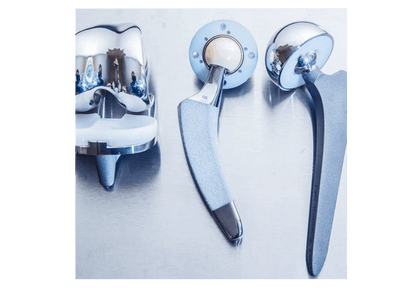Central Illinois Since 1895
Metal on Metal Hip

The New York Times recently reported that metal-on-metal hip implants can have serious and sometimes lifelong complications. Koester Law, PLLC has been investigating metal-on-metal hips since 2008 and has recovered millions for local Central Illinois clients over the last 8 years. It is important to understand that Metal-on-Metal hip cases are still ongoing.
These implants were initially designed to be more durable and long-lasting than standard hip implants with liners. Despite these great hopes, metal-on-metal hips cause loss of bone, inflammatory reactions, death of surrounding tissue (metallosis) –all of which can call for replacement.
The article reported that the metal-on-metal implants have been used in about one-third of the approximately 250,000 hip replacements performed each year. A study in the Journal of Arthroplasty echoed the New York Times by suggesting the use the metal-on-metal implants with “great caution, if at all.”
Given the great hope that metal-on-metal hips provided surgeons, almost every medical device manufacturer made these devices. Almost all of these were introduced to market through the 510(k) process. This process is a “short cut” for device manufacturers to market devices without stringent FDA review. DePuy led the way with the ASR, which was the first hip to be recalled in 2010.
Some of the most popular metal-on-metal hip implants include:
- DePuy ASR (recalled)
- DePuy Pinnacle
- Stryker ABG II (recalled)
- Stryker Rejuvenate (recalled)
- Wright ProFemur
- Biomet M2A Magnum
- Smith & Nephew Birmingham
- And more
Given the grave injuries resulting from metal-on-metal hips, individuals with these devices should visit their doctors immediately. Injuries resulting from metal hips include:
- Failure of the device (breaking, needing early replacement)
- Dislocation of the hip
- Loss of bone
- Inflammatory reactions causing pain
- Death of surrounding tissue know as metalosis
- Pseudotumors
- Metallosis
- Heavy metal poisoning
- Corrosion
Most patients with metal hips should monitor their blood ion levels frequently and keep in contact with their doctors or surgeons. Even if you feel fine, the metal levels in your blood can be high. It is important to remember that a very large number of these metal-on-metal hips were used in Central Illinois and it is vital to have a local attorney on your side that understands the process and knows the surgeons.









